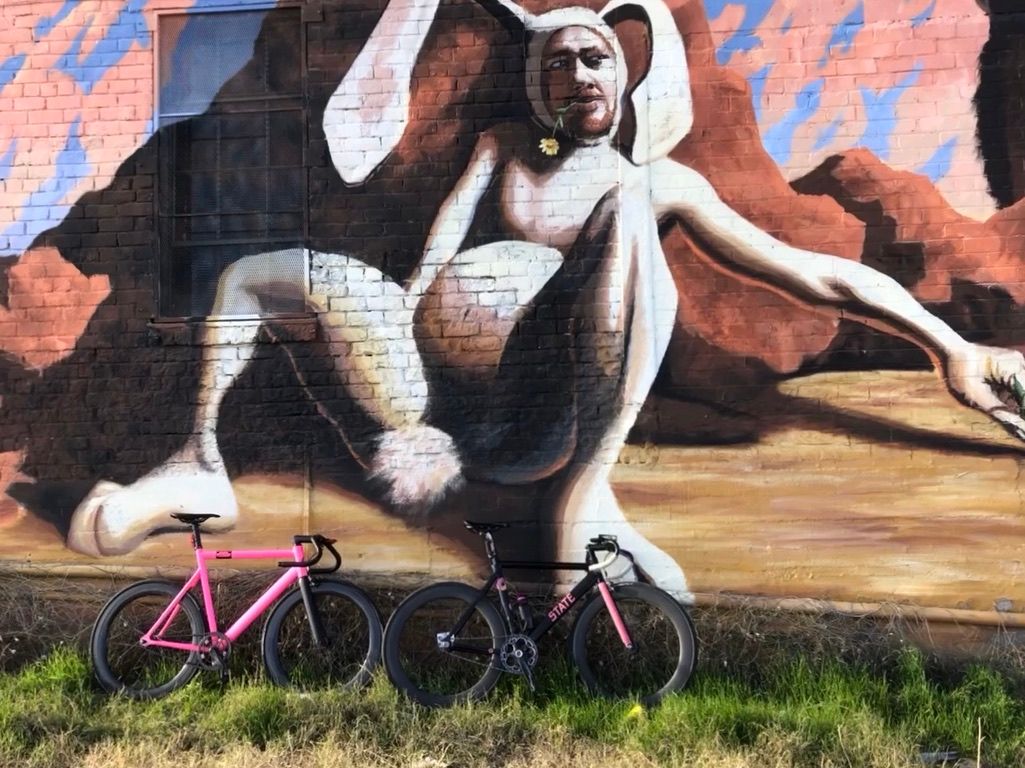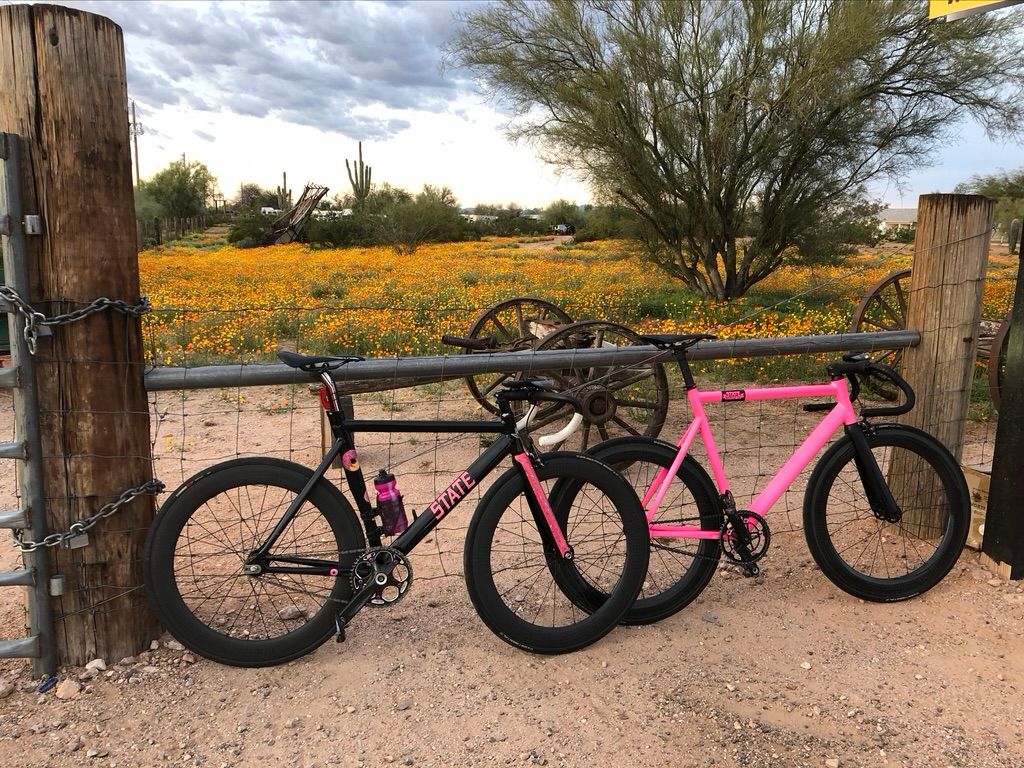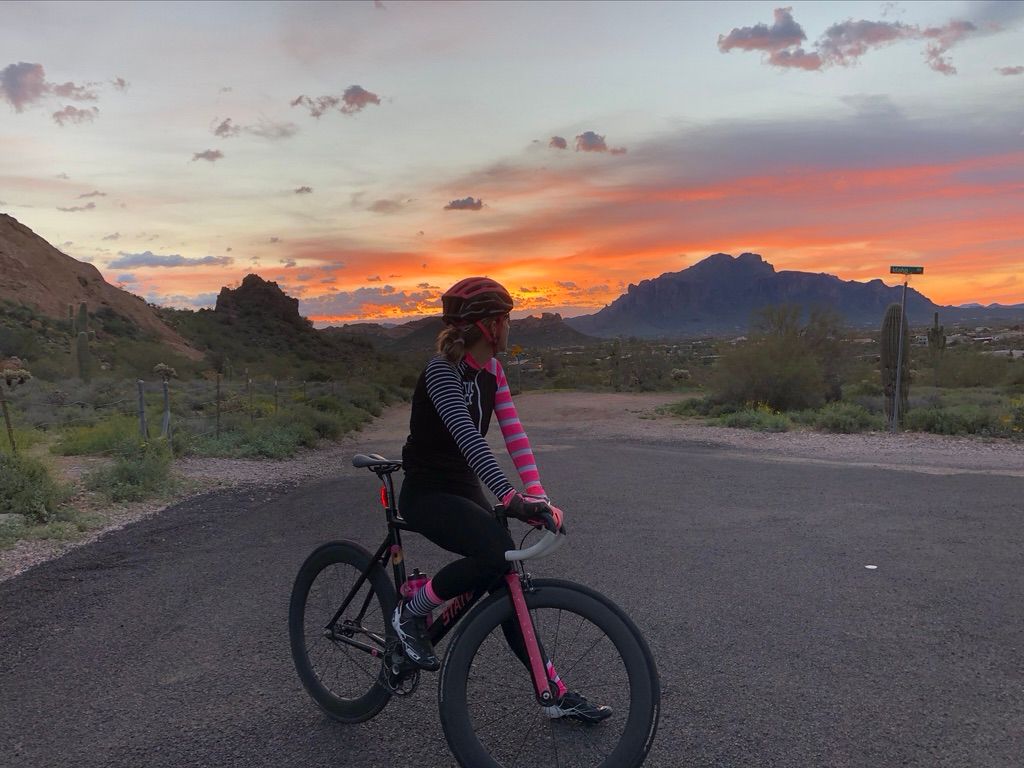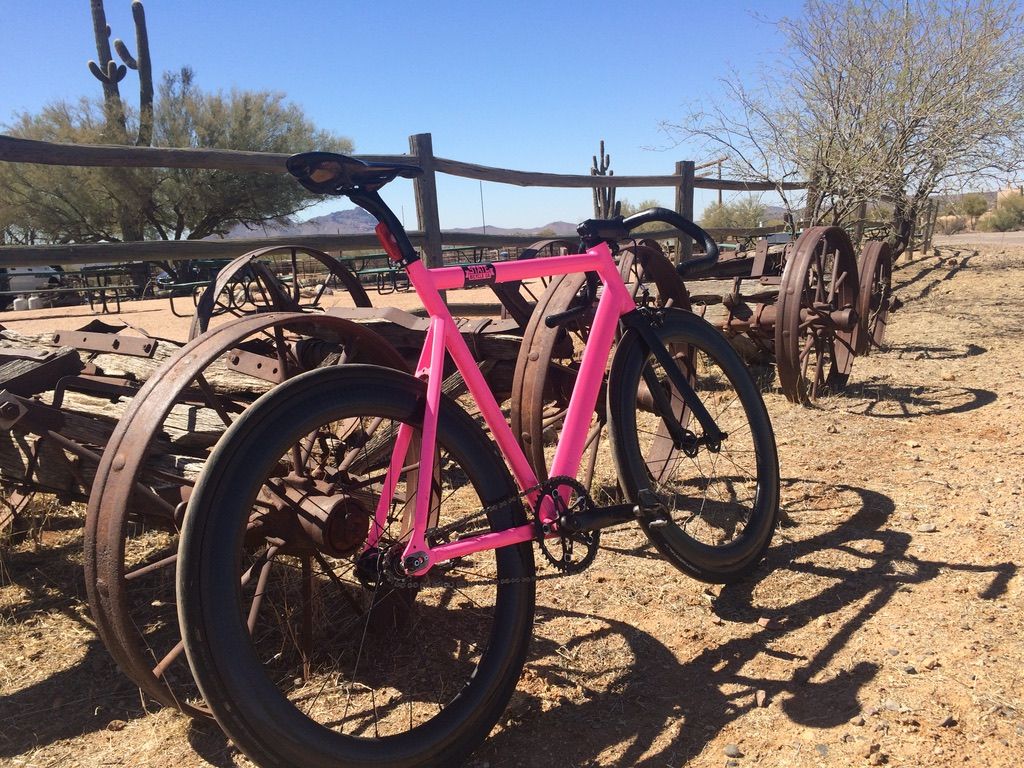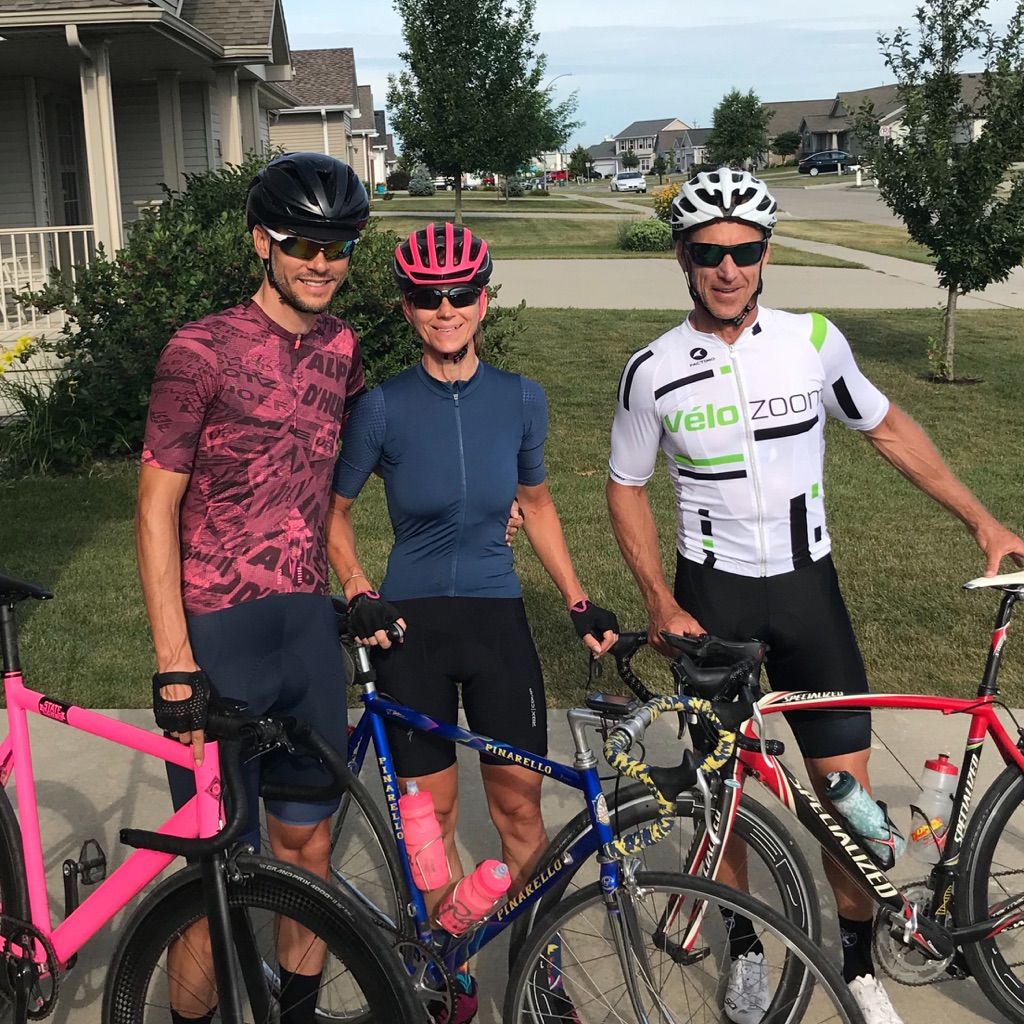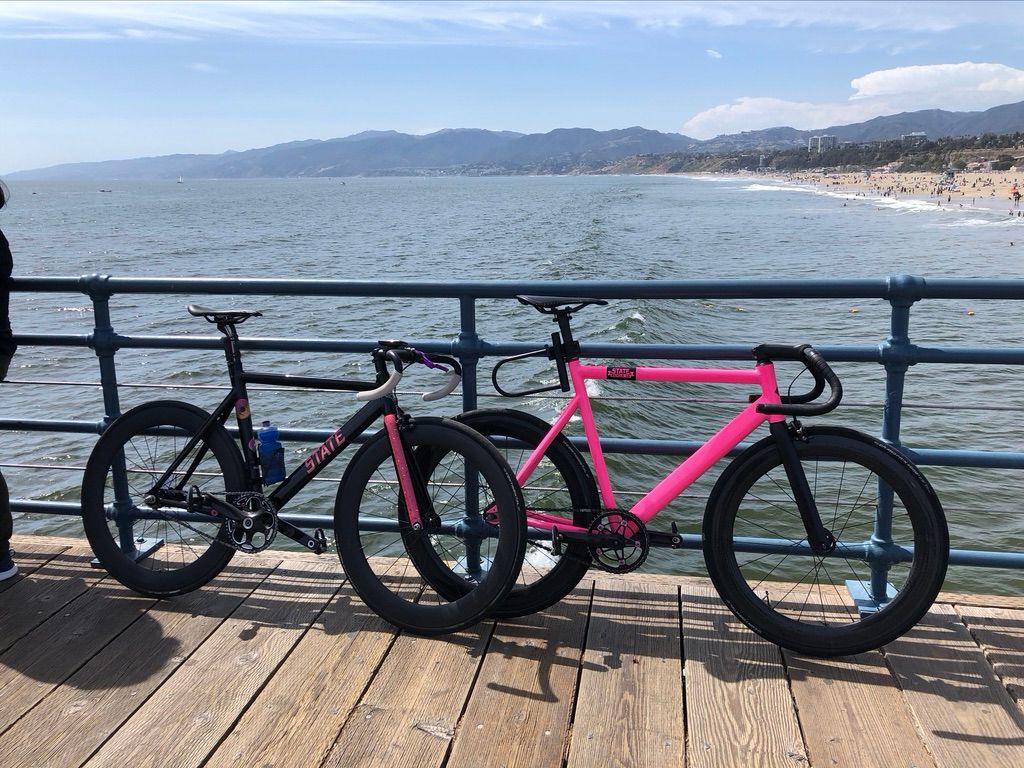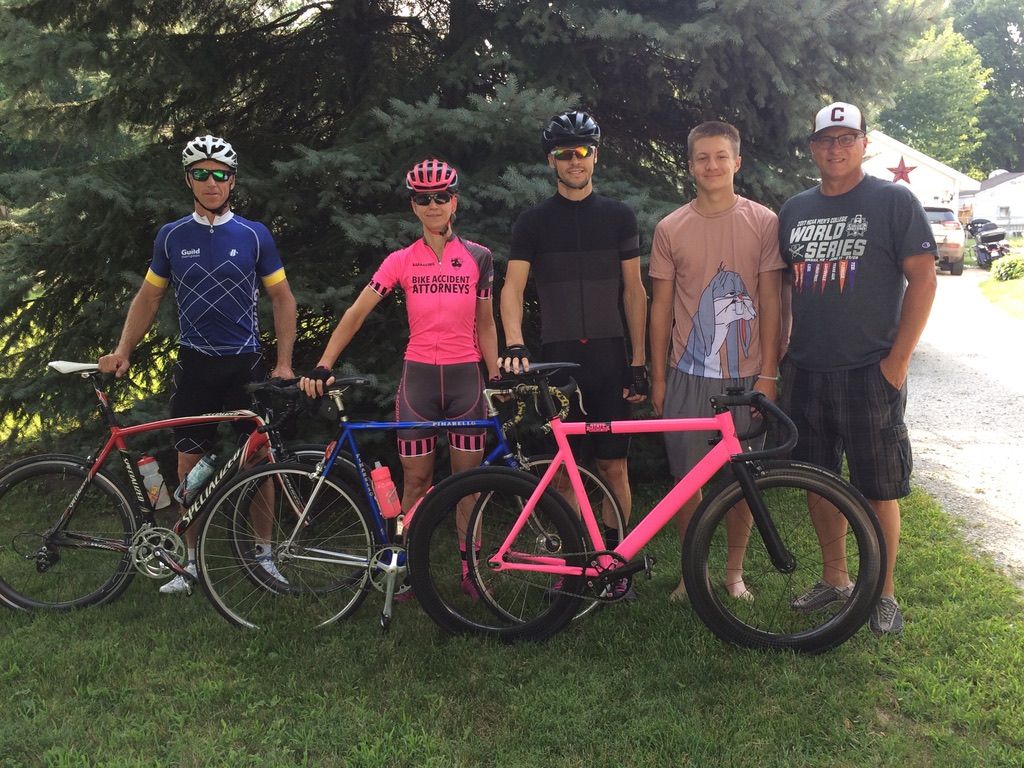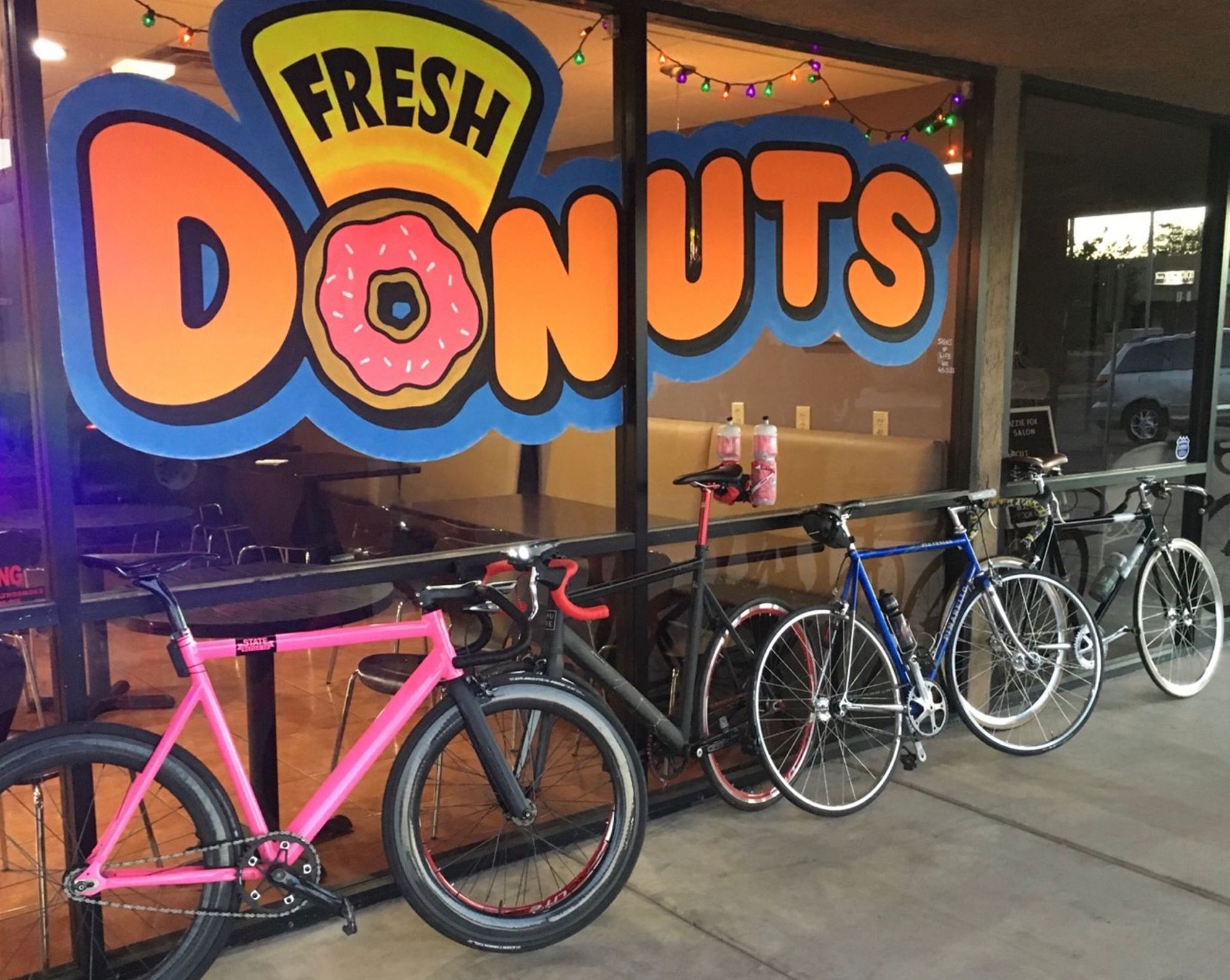My wife and I had many bikes while living in Arizona:
- 2 Cyclocross bikes
- 3 Road (racing) bikes
- 2 Time trial bikes
- 2 Mountain bikes
- 3 Fixed gear bikes
- 1 Tandem bike
Most years, we logged the majority of our miles on the road bikes. We had just about the highest end road bikes you could buy before considering the "boutique" brands reserved for the very rich and very gullible. Since we started using the Strava website in 2011 to log our bike rides, we have about 190,000 total miles (~300,000 km) worth of GPS tracks logged. The biggest mileage year I did was in 2017, where I logged 14,941 miles (24,045 km), claimed an Everesting on EOP hill in Phoenix and won a 335 mile bike race across Iowa. After all these miles, you might guess that I'd have some opinions on what I think are the best bikes, but you'd probably be surprised that both our favorite bikes are the fixies which are about a tenth the cost of the others.
In the liquidation of all our possessions in preparation to moving to Portugal, we have gotten rid of all our previous bikes except for 2 fixies. If you don't know what a fixie is, its best described as the most primitive and simplest form of a bicycle. There are no shifters, no gears, no freewheel for coasting, no bottle cages, no quick release wheels, and often no brakes (though we both run a single, front brake). Here's mine:
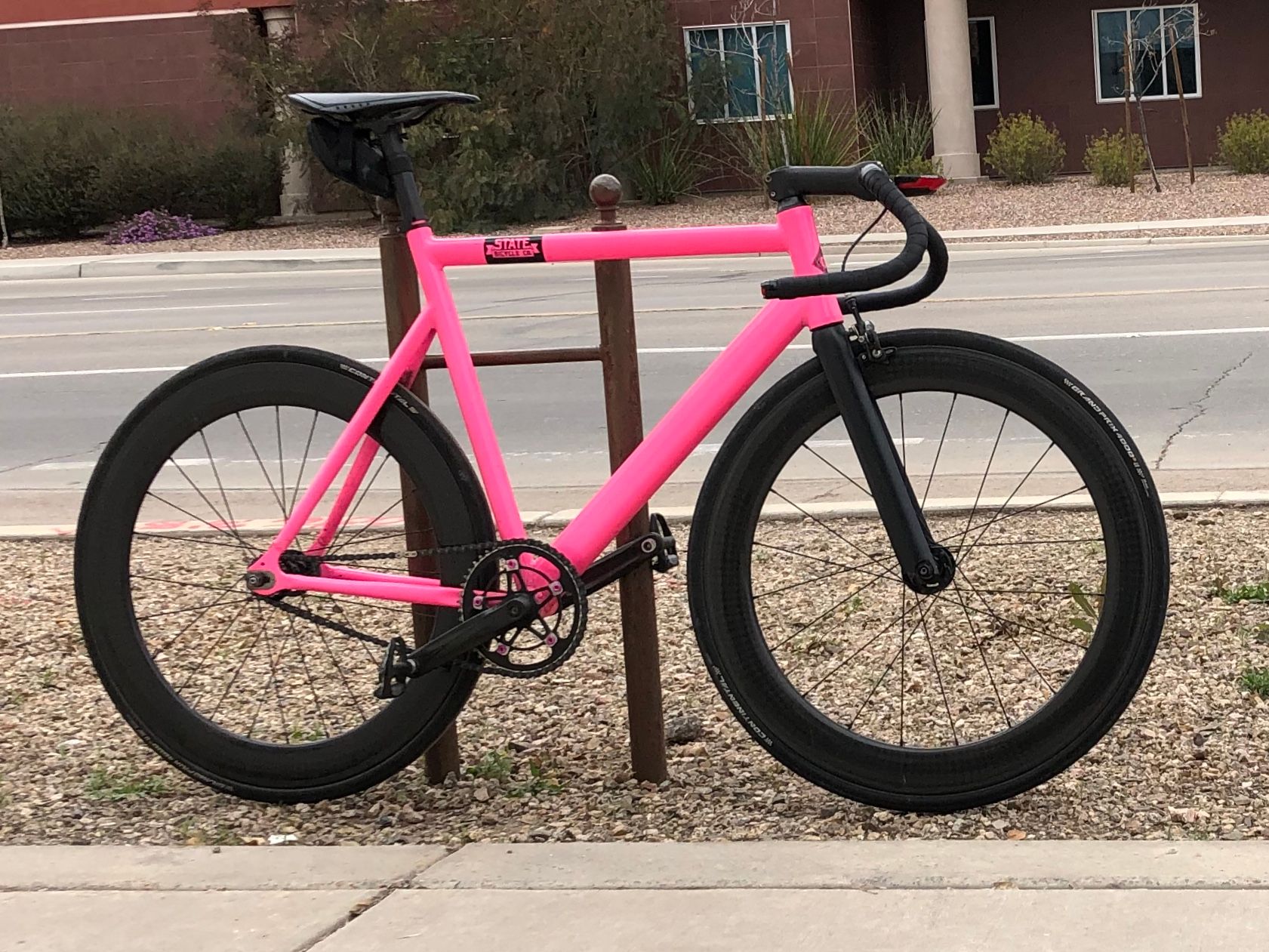
It's really a piece of crap. It's a mass-produced aluminum frame (likely from China) and the cheapest, lowest quality parts sourced from overseas importer aliexpress.com. It's probably a wonder it hasn't spontaneously broken and caused me to crash. Its fraction of the value of my other bikes and gets treated with a fraction of respect by me. If you think I might be sensitive to anyone trash talking or mocking me riding this bike, you would be wrong as I probably agree. I actually enjoy showing up to group rides and having the cheapest bike there.
The "brandlessness" for me is one of the finer points of this bike. It's not a rolling billboard for bike manufacturing companies and I appreciate that modesty. Aside from the small frame manufacturer logo, there is no indication of make and model on any of the other parts. Any flashiness it has it does so only by virtue of its simple one color paint job in hot-pink (a little school girl favorite, so it seems). The rest of the parts have been deemed of low enough importance to not even bother their production tooling with any extra step to even apply a sticker. Sure, they're low quality, but I really don't care. I've put 12,000 miles (19,000 km) on this bike so far and it hasn't fallen apart yet. Compared to the other things humanity is capable of building this century, making bicycles that don't fall apart is not rocket science.
What about the other modern conveniences being conceded in a fixie? My math geekery may show here, but let's, for fun, be rational and objective about things and analyze the defiencies as if it were a numerical optimization problem. For optimization, you need an objective variable to minimize or maximize against a multidimensional search space of all the other variables. Its rare for things to be so simple as being composed of only objective traits as there are always many subjective ones also involved. Optimization with subjective variables can still be performed but you need to identify and then assign a "personal prescalar" to weight them properly alongside the purely objective ones (like cost). I believe almost all technical product marketing is simply an effort to convince you to add new dimensions to your personal optimization problem or change the prescalar you assign to one of your subjective ones. Although its pretty easy to optimize for 2 dimension in your head and you might even be able to visually conceptualize up to 3 dimensions, anything more than that you'll probably need a computer running MATLAB or a CAS like Maxima to conclude the best bike, mathematically. (I recommend trying the COBYLA algorithm)
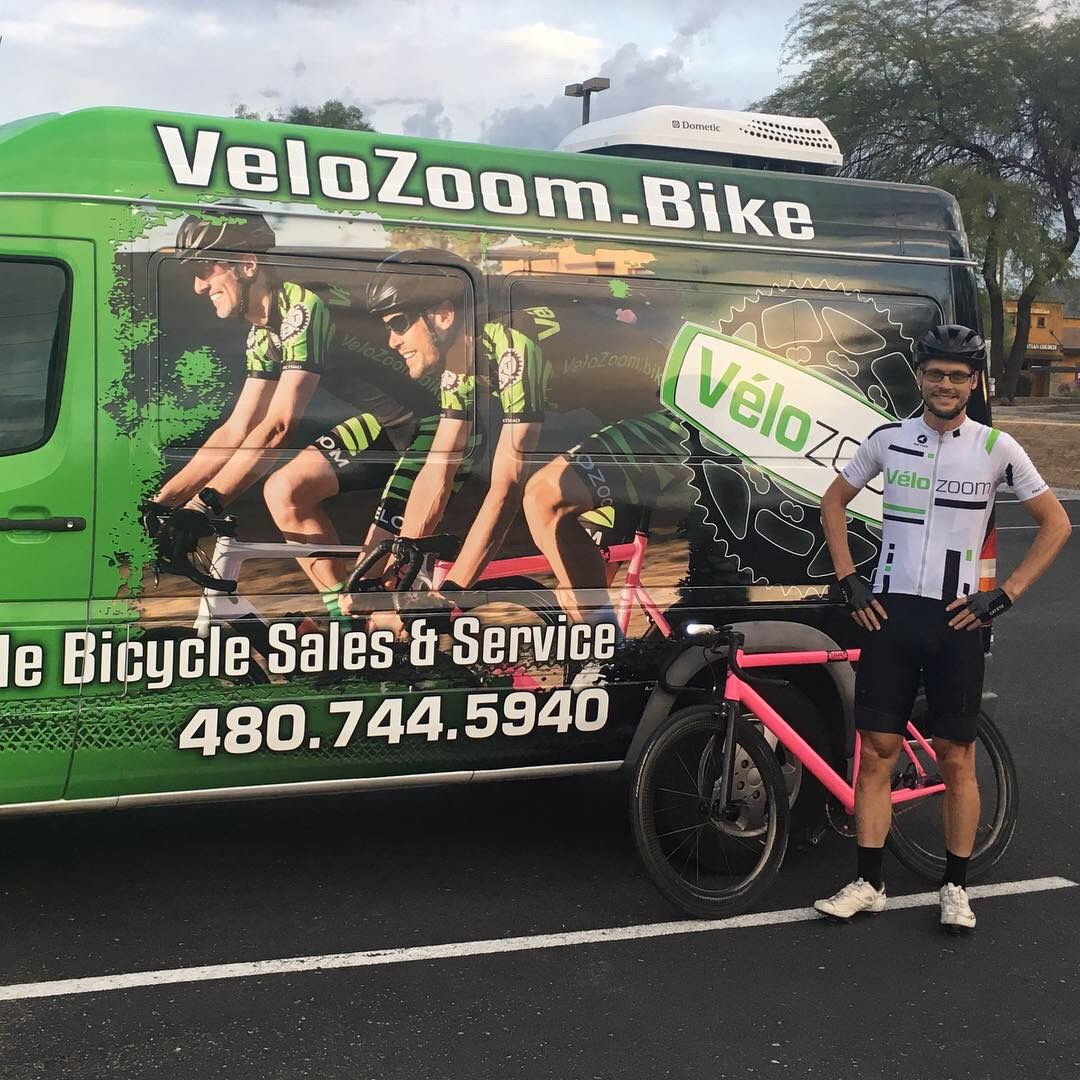
I really hate technical marketing. It's not that I don't enjoying reasoning, its just that it seems half the strategy is to overload you with choice paralysis and insecurity in your chosen subjective weightings and search space dimensions that you abandon it altogether. You end up making an emotional decision anyway or an overly simplified 2-dimensional analysis and deceive yourself that you, unlike most "non-savvy" people, "did your research." I, unashamedly, prefer to embrace my inner irrationality to preserve energy for being rational elsewhere. After 30+ years riding bikes, I choose bikes now based on aesthetic and whimsy. I'm reticent to invoke the full authority of my problem solving skills on incomplete data, and what passes for "specs" on bikes is a far cry from what I'm used to with engineering component datasheets.
What does this have to do with fixies? As a retired computer engineer, I have an almost unhealthy obsession with simplicity and in the reduction of complexity, so the fixie is very attractive to me as the minimalist's bike of choice. The inability to coast limits me to about 32mph downhill, and the inability to shift requires a tolerance of high dynamic cadence range. All in all, surprisingly I'm only about 1mph slower in average speeds on fixie rides than my road bike, presuming I'm not climbing/descending big mountains. "Comfort" on the bike is mostly irrelevant to me; as long as it fits properly the rest is trainable. You eventually get used to what and how you ride.
This last thought is worth repeating as an analogy to lifestyle. You get your first taste as a kid with a toy version and eventually allow yourself to believe the experience can be "upgraded" with better and more expensive gear. At first it might, and our consumerist culture reinforces tendencies to keep replacing and upgrading with the latest and greatest. Eventually though, maybe much later, you find yourself uninspired with the "latest and greatest" and if you're like me, you might meander instead in the opposite direction, to see just how low tech you can go and still retain the same level of enjoyment. If you follow this path and really love cycling, there's probably a fixie in your future too.
